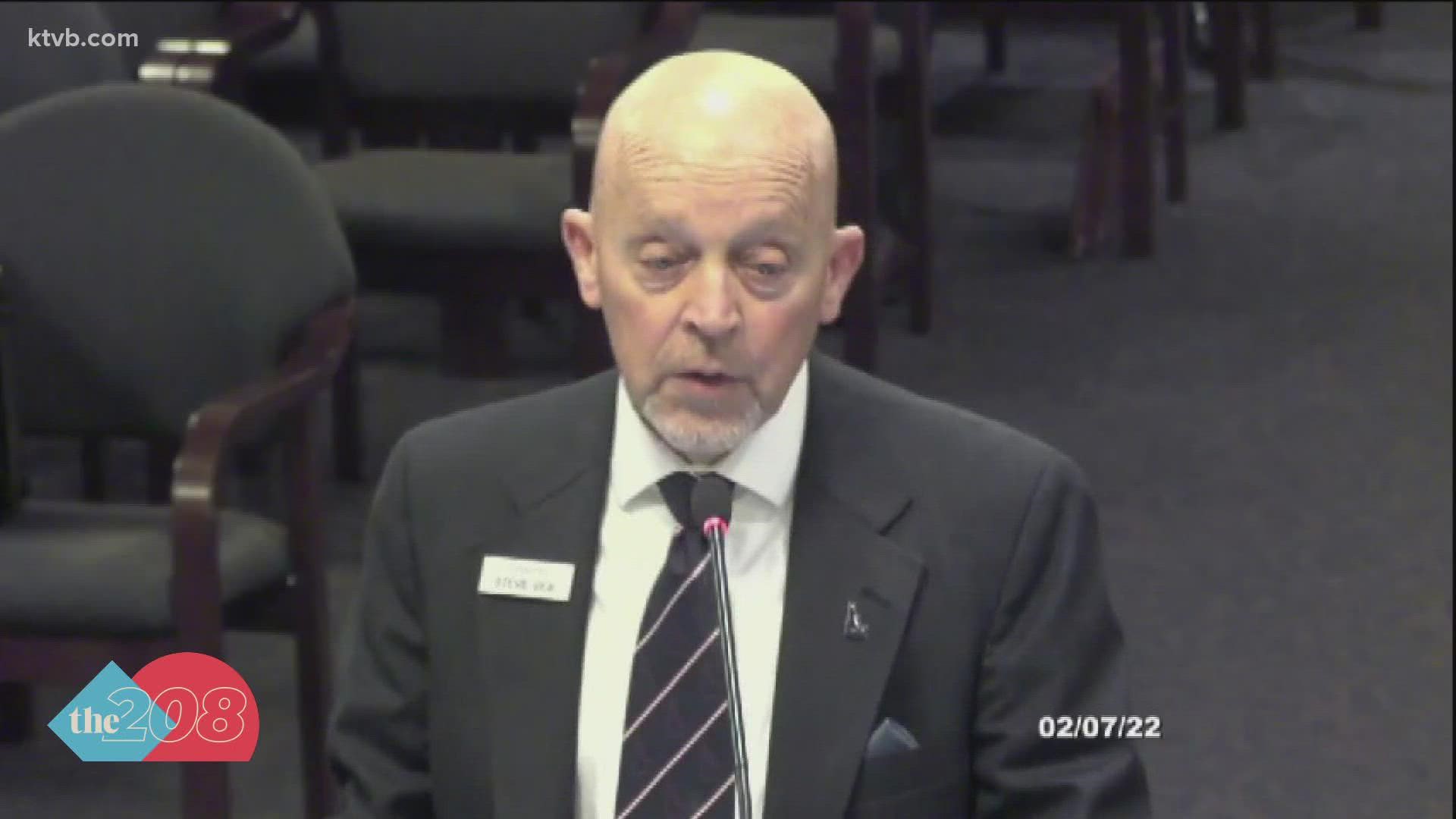BOISE, Idaho — Editor's note: The video above this article was published Feb. 7, when HB 509 moved to the House floor for debate.
This article originally appeared in the Idaho Press.
After much debate and with bipartisan opposition, HB 509, raising the grocery tax credit by $20 per person starting with tax returns filed in 2024 for the 2023 tax year, passed the Idaho House on Thursday on a 40-27 vote.
Much of the debate centered on concerns that the increase wasn't enough, particularly with the current high rate of inflation for groceries.
Idaho applies its full 6% sales tax to food, but then provides a $100 per person refundable credit on income tax returns to offset sales taxes paid on groceries, $120 for a person aged 65 or over. HB 509 would raise that to $120 and $140.
Rep. Jim Addis, R-Coeur d'Alene, the bill’s sponsor, argued that the bill would provide tax relief for a family of four on “$8,000 of food purchased annually." However, that's the amount that would be provided by the current $100-per-person credit plus the bill's $20 increase. The $20 increase alone, multiplied by four for a family of four, would only offset Idaho's 6% sales tax on $1,333 in grocery purchases in a year.
Rep. John Gannon, D-Boise, said the current high inflation warrants more of a break for taxpayers on their grocery purchases. “We should be repealing or suspending the tax on food during these inflationary times, not buying helicopters," Gannon declared, referring to the Idaho State Police's budget request for its first helicopter next year. "I hope this body decides to take real, meaningful tax relief."
Rep. Ron Nate, R-Rexburg, moved to sidetrack the bill to the House’s amending order to add a full repeal of the sales tax on groceries. "You're looking at two years out before you get a paltry $20 tax credit off your income tax. We have a $2 billion surplus,” he said. “This is insulting to families whose hard work created this surplus."
Nate’s motion failed, 26-41. All but two House Democrats voted in favor of Nate's motion, joining forces with far-right Republicans. But when the bill came up for a vote on final passage, the minority Democrats split down the middle, with six voting for the bill and six against.
House Republicans split 31-18 in favor of passing the bill, and were overwhelmingly against Nate's motion, with 13 GOP representatives voting in favor and 32 against.
Rep. James Ruchti, D-Pocatello, who voted against the motion but in favor of the bill, said the problem is that lawmakers already have spent $600 million this year on a giant package of income tax cuts and rebates, which Gov. Brad Little already signed into law.
“We voted for a tax bill that took up $600 million of our funding, about a third of the surplus,” Ruchti said, “and so now we’re in a position where we don’t have a lot more, if we’re going to do some of the things we’ve talked about doing for infrastructure, for education. So we kind of put ourselves in this position.”
“I agree, it’s not much, it doesn’t make up for inflation, but this is what we got,” Ruchti said.
Rep. Lance Clow, R-Twin Falls, said, “Tax policy is difficult. ... I’m going to vote no on this bill because I think property taxes is the No. 1 thing we should deal with. … I would prefer to see another attempt made at this.”
Addis said research by the Legislative Services Office showed that of the proposed $20 increase, $12 would cover inflation from the last time the credit was raised in 2015 to today.
Rep. Tammy Nichols, R-Middleton, said, "How can we call this the best thing that we can give our constituents as well as the taxpayers in Idaho? I think that there's more that we can do."
Addis said, "Quite simply, the purpose of this bill is to provide tax relief to Idahoans. Are there other ways to do that? There certainly are. ... We've done it in income tax, this is an attempt for food tax."
To become law, HB 509 still would need to clear a Senate committee, pass the full Senate and receive the governor's signature.
This article originally appeared in the Idaho Press, read more on IdahoPress.com.
Watch more Idaho politics:
See all of our latest political coverage in our YouTube playlist:

